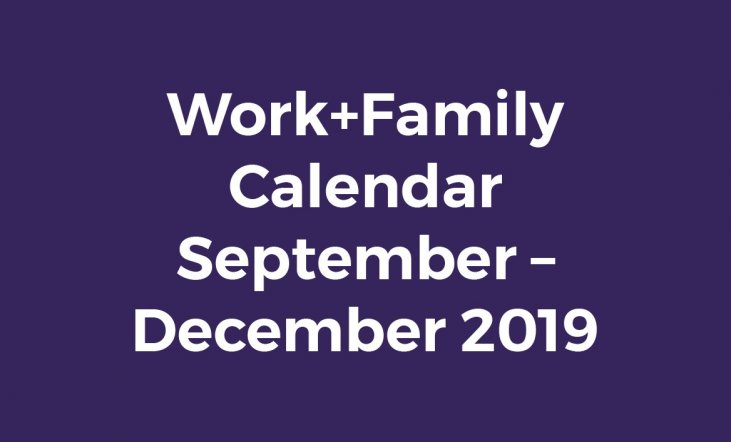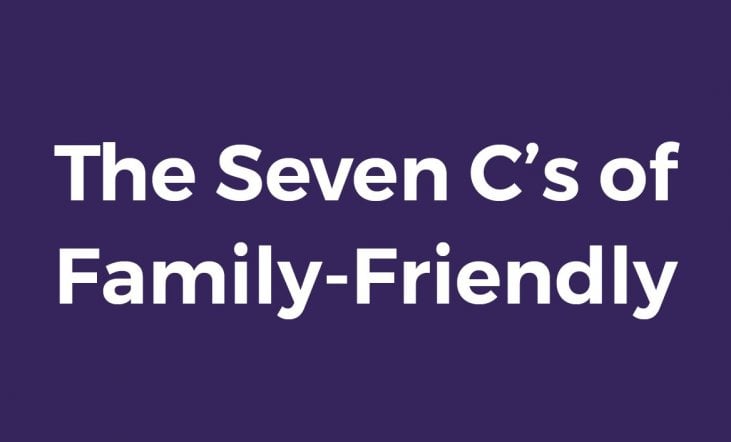Downloads
Newsletter Sign Up
Regular work+family updates for
HR and diversity professionals.
My Family Care asks Jennifer: With National Careers Week and International Women's Day falling in the same month, what better time than to discuss where equality in the workplace is for women. From your viewpoint, has the equality gap begun to close? And what needs to be done to progress to the next level?
What the statistics say
The Sex and Power report 2013 implies things are no more equal then they ever were. According to the report's press release: "Three quarters of MPs are men; 90% of Bank CEO's are men; two thirds of public appointments go to men; almost 90% of Chief Constables and Police & Crime Commissioners are men; two thirds of local councilors are men".
Yet, it depends where you look. As Ben Black cheerfully points out in his blog: "Some of the numbers thrown out are pleasantly positive. Look at head teachers; senior civil servants; heads of professional bodies and women make up well over 30% of the positions held... and 34% of all London MP's are female".
So it would seem you can read the stats in a range of ways, not all of which are equal.
What's happening in practice
What we do notice is that many more employers are putting in place Unconscious Bias Training now, compared with, say, 5 years ago. So even though there are not yet equal numbers of women in high places, at least there is awareness that some of the barriers are about perception. The (probably well-founded) myth goes that men are promoted for their potential while women are promoted on the basis of their performance. Women who are decisive, assertive, claim their own successes and level with others, whatever their gender, can still be experienced as "threatening" or "aggressive" in the board room, on the shop floor, or in the friendly open plan office.
So training both male and female managers to be aware that their appraisals will likely include bias of this kind is a key to genuine equality.
Of course, those same managers come into work each day fresh from their own home circumstances; or jaded by them. Do male managers quake when their wives say what they want and need in clear, undeferential terms? Do senior female leaders still find themselves over-flattering a delicate male ego at home "for the sake of a quiet life"? It sounds out of touch and sexist to even ask this; yet this question is fueled by endless conversations I have heard about awkward home dynamics.
So, what good news it is, then, for Equality, that the Modern Workplaces Consultation has paved the way for three rather useful measures:
- A new system of flexible parental leave
- A right for all employees to request flexible working
- Measures to encourage equal pay for equal work between men and women.
What the government is doing
The Government published its response to the equal pay element of the consultation in July 2012 and intends to proceed with a requirement for employers who lose an employment tribunal case on equal pay to carry out a pay audit.
The provisions on extending the right to request flexible working to all employees (not only those with dependants) is a break-through in the sense that flexible working will move away from being seen as 'favour' for mums.
Flexible parental leave meanwhile will encourage couples to have a much more equal debate about who will care for a new child and when, and even to take their baby leave both at the same time, or in blocks, so one partner could take a brief block of leave later on while the first 'leaver' returns to work.
These measures are set to come into place by 2015, and a consultation is running until 20th May as to how they should be administered by employers.
Bringing Dads on-board
Engaging and enabling Dads to share more in parenting practicalities is a significant piece of the jigsaw within the bigger picture of equality for women (as well as making things better for children and dads!).
Lottery-funded research by Lancaster University Management School and the charity Working Families showed Dads want flexibility at work and more family involvement, and they feel better for it.
Fathers who have some flexibility in their working arrangements reported benefits in their work relationships, sense of control at work, job security, reduction in sense of overload, commitment to their organisation, physical health and positive psychological well-being.
It all has the feel of a gender equality initiative that's wanted by all.
As working parents, the way we talk about all this at home and work will have a huge impact on how this pans out at work.
Jennifer Liston-Smith, Director of Coaching and Consultancy, My Family Care












